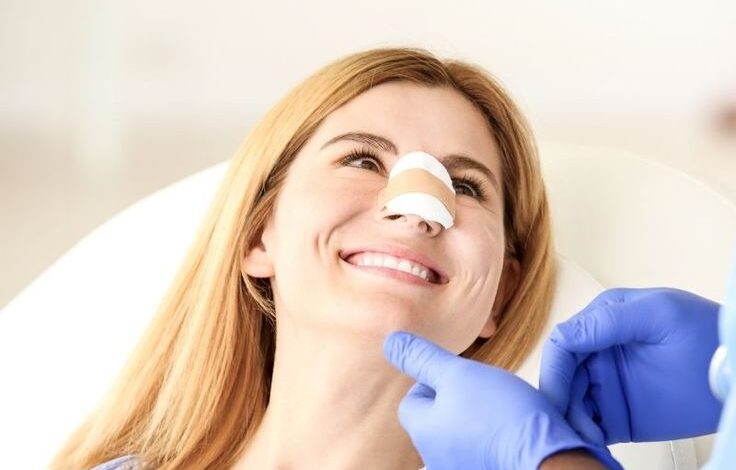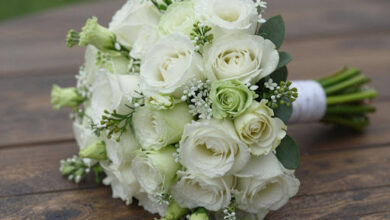Protecting Your New Nose: What Not to Do After Rhinoplasty

Rhinoplasty, commonly known as a nose job, is a transformative procedure that can enhance both the appearance and functionality of your nose. While the results can be life-changing, the recovery process requires care and discipline. Following your surgeon’s instructions and avoiding specific activities is crucial for ensuring a smooth healing process and achieving the best possible outcome. In this guide, we’ll explore what is forbidden after rhinoplasty and why these restrictions are so important.
Rhinoplasty Turkey involves reshaping the nasal structure, which can include altering the cartilage, bone, or both. After surgery, the tissues and incisions need time to heal, and the nose’s delicate structure must stabilize. Recovery is gradual and typically occurs in stages:
- First Week: Swelling, bruising, and discomfort are most pronounced. A splint may be used to support the nose.
- Weeks 2-3: Swelling begins to subside, and visible bruising fades. You may resume light activities.
- 3-6 Months: Swelling continues to decrease, and the nasal structure settles into its new shape.
- One Year: Final results are visible, and all internal and external healing is complete.
Understanding this timeline highlights why certain restrictions are critical to protect the nose during its most vulnerable stages.
Why Restrictions Are Necessary After Rhinoplasty
Post-surgical restrictions are in place to:
- Protect the Nose’s Structure: The nasal framework is fragile during recovery, and improper care can cause misalignment or shifting.
- Prevent Complications: Ignoring restrictions can lead to infections, prolonged swelling, or poor healing.
- Optimize Results: Following guidelines ensures the nose heals in its intended shape, enhancing the long-term outcome.
Your surgeon provides these instructions to maximize the success of your procedure and minimize the risk of setbacks.
Activities to Avoid Immediately After Surgery
1. Strenuous Exercise
High-impact activities, such as running, weightlifting, or sports, increase blood flow and pressure, which can worsen swelling or cause bleeding. Avoid strenuous exercise for at least 4-6 weeks or until your surgeon approves.
2. Heavy Lifting
Lifting heavy objects strains your body and can disrupt the healing process. Avoid carrying groceries, moving furniture, or lifting anything over 10 pounds during the early weeks.
3. Bending Over
Leaning forward or bending at the waist increases blood pressure in the face, which can worsen swelling and risk bleeding. Instead, bend your knees to pick up items from the floor.
Avoiding Blows or Trauma to the Nose
Even a minor bump can shift the nasal structure or damage delicate incisions. Be cautious in crowded spaces, avoid activities like contact sports, and protect your nose during sleep. Wearing a nasal splint during the first week provides added protection.
Sleeping Restrictions
Proper sleep positioning is essential to avoid putting pressure on your nose. Sleeping on your back with your head elevated using pillows or a wedge pillow reduces swelling and protects the nose. Avoid sleeping on your side or stomach for at least 4 weeks to prevent unintentional pressure on the nasal area.
Dietary and Hydration Restrictions
Foods to Avoid:
- Hard or Chewy Foods: Avoid items like steak, gum, or crusty bread, as excessive chewing can strain your facial muscles.
- Spicy Foods: These may cause irritation or nasal congestion.
Diet Tips:
- Focus on soft, nutrient-rich foods like soups, smoothies, yogurt, and mashed vegetables.
- Drink plenty of water to stay hydrated and support healing, but avoid alcohol and caffeine, which can worsen swelling and interfere with medications.
Sun Exposure Limitations
Direct sunlight can cause pigmentation changes in healing scars and exacerbate swelling. Use sunscreen with at least SPF 30 on your nose and avoid prolonged sun exposure for 6-12 months. Protective hats and sunglasses with UV protection are also helpful.
Restrictions on Glasses and Eyewear
Glasses or sunglasses resting on the nose can pressure the healing structure, potentially causing indentations or misalignment. Use alternatives such as contact lenses, or wear glasses with a forehead strap to keep weight off your nose. Most surgeons recommend avoiding glasses for at least 6-8 weeks.
Avoiding Smoking and Alcohol
Why Smoking Is Prohibited:
- Smoking restricts blood flow and slows healing.
- It increases the risk of infection and poor scar formation.
Alcohol’s Impact:
- Alcohol can thin the blood, increasing the risk of bleeding.
- It dehydrates your body, delaying recovery.
Commit to avoiding both during recovery and consider quitting smoking permanently for long-term health benefits.
Skincare and Makeup Restrictions
Avoid Early Use of Makeup:
Refrain from applying makeup around the nose for at least 2 weeks to avoid irritation or contamination.
Skincare Guidelines:
- Use gentle cleansers recommended by your surgeon.
- Avoid exfoliants or harsh products that can irritate healing skin.
Avoiding Nose Blowing or Sneezing Forcefully
Blowing your nose or sneezing can disrupt internal stitches and nasal structures. If you feel the need to sneeze, do so with your mouth open to reduce pressure on the nose.
Avoiding Swimming and Water Activities
Submerging your nose in water can introduce bacteria to healing incisions and increase the risk of infection. Avoid swimming, diving, or using hot tubs for at least 6 weeks.
When to Contact Your Surgeon
Contact your surgeon immediately if you notice:
- Persistent or worsening swelling
- Fever or unusual redness around the nose
- Excessive bleeding or discharge
- Severe pain that doesn’t respond to medication
Your surgeon is your partner in recovery, so don’t hesitate to reach out with concerns.
Recovering from rhinoplasty requires patience, discipline, and a commitment to following your surgeon’s guidelines. By avoiding certain activities and habits, you can ensure a smoother healing process and enjoy the long-lasting benefits of your procedure. Focus on your health, trust the process, and look forward to the confidence your results will bring!
Ready to transform your look with confidence? Luna Clinic is here to guide you through every step of your rhinoplasty journey. With world-class surgeons, cutting-edge facilities, and personalized care plans, we prioritize your safety and satisfaction above all else.
Located in Turkey, a global hub for affordable and high-quality cosmetic surgery, Luna Clinic offers all-inclusive packages that include pre- and post-operative consultations, luxury accommodations, airport transfers, and dedicated follow-up care.
Don’t wait to achieve the nose you’ve always wanted—visit Luna Clinic today to book your free consultation and start your journey toward confidence and beauty!


